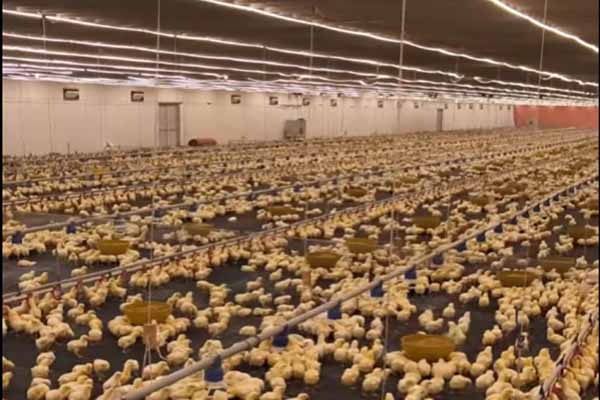Revolutionizing Agriculture in Tanzania: An Automation Solution for Individual Farmers with 10,000 Chickens
Time : 2025-07-02
In the bustling landscape of Tanzania’s agriculture sector, the role of individual farmers has been instrumental in driving the country’s economy. However, with the increasing demand for chicken meat and eggs, these farmers have been facing various challenges, including the need for efficient automation solutions. This article delves into the automation solutions tailored for individual farmers in Tanzania, specifically those managing 10,000 chickens.
Introduction
Tanzania’s agriculture sector is witnessing remarkable growth, and the demand for poultry products is skyrocketing. As a result, individual farmers need to upscale their operations to meet the ever-growing market needs. However, managing a flock of 10,000 chickens manually is a daunting task. This is where automation comes into play. In this article, we explore the automation solutions that can revolutionize the way individual farmers in Tanzania manage their chicken farming operations.
Understanding the Needs
Before diving into the automation solutions, it is crucial to understand the needs of individual farmers in Tanzania. These farmers often lack the necessary capital and resources to invest in high-tech equipment. However, they are looking for solutions that can enhance their productivity, reduce labor costs, and ensure animal welfare.
Key Automation Solutions
1. Automated Feeders
Feeding chickens manually is a labor-intensive and time-consuming process. Automated feeders can solve this problem by providing continuous and balanced feeding to the flock. These feeders can be programmed to dispense the required amount of feed at specific intervals, thereby ensuring that each chicken receives an adequate amount of nutrition.
2. Automatic Waterers
Just like feeders, waterers are essential for the health and well-being of chickens. Automatic waterers can ensure a continuous supply of fresh water to the chickens, preventing dehydration and maintaining their overall health. These waterers can be equipped with sensors to detect low water levels and automatically refill when needed.
3. Temperature and Humidity Controllers
Maintaining an optimal environment for chickens is critical for their growth and health. Automated temperature and humidity controllers can be installed in the chicken coop to regulate the climate. These controllers can monitor the internal conditions and adjust the heating or cooling systems accordingly.
4. Egg Collection Systems
Collecting eggs manually is not only time-consuming but also inefficient. Egg collection systems can automatically gather eggs from the chicken coop and deposit them in a designated area. This not only saves time and labor but also minimizes the risk of eggs being contaminated or damaged.
5. Health Monitoring Systems
Monitoring the health of a large flock of chickens is a challenging task. Health monitoring systems can be implemented to track vital signs such as body temperature, heart rate, and activity levels. These systems can alert farmers to any potential health issues, allowing them to take timely action.
Implementation of Automation Solutions
To successfully implement automation solutions, individual farmers in Tanzania need to consider the following factors:
1. Budget
The cost of purchasing and installing automation equipment can be a significant investment. However, farmers should consider the long-term benefits, such as increased productivity, reduced labor costs, and improved animal welfare.
2. Training
Farmers need to be trained on how to operate and maintain the automation systems. This can be achieved through workshops, online courses, or on-site training sessions.
3. Local Support
Local manufacturers and suppliers can provide technical support, maintenance, and spare parts for the automation systems. Establishing partnerships with these local entities can ensure the smooth operation of the equipment.
Case Study: Successful Implementation of Automation Solutions
One of the leading poultry farmers in Tanzania, Mr. John, has successfully implemented automation solutions for his 10,000 chicken farm. By investing in automated feeders, waterers, and health monitoring systems, Mr. John has seen a significant increase in productivity and profit margins. The automated systems have also reduced his dependency on manual labor, allowing him to focus on other aspects of his farm.
Conclusion
The implementation of automation solutions in Tanzania’s individual chicken farming sector is a game-changer. By investing in automated feeders, waterers, temperature and humidity controllers, egg collection systems, and health monitoring systems, individual farmers can enhance their productivity, reduce labor costs, and ensure animal welfare. As the demand for poultry products continues to grow, automation will play a crucial role in meeting the needs of the market.












